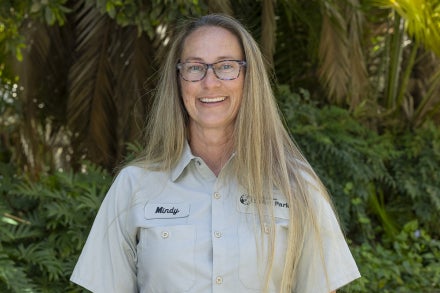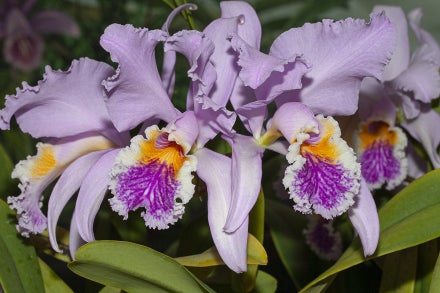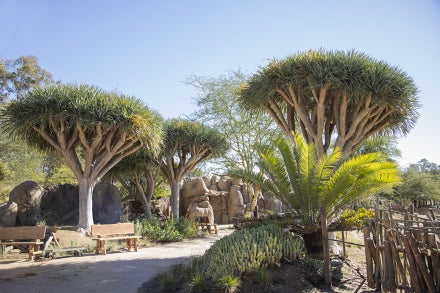
We have a very exciting new addition to African Woods! A pair of lappet-faced vultures have taken up residency along the African Woods trail. While all of the vultures that reside here at the Safari Park are special and serve an important purpose, let me tell you what makes the lappets so exceptionally cool!
They’re rare—there are only a handful of these endangered birds in the United States, so just seeing one up close is something to write home about. San Diego Zoo Global has a long history with these birds, in fact a lappet-faced Vulture was the very first vulture to make the San Diego Zoo its home in 1923. The Safari Park has had lappet-faced vultures over the years, more recently seen from the Africa Tram but this is the first time Park visitors have had the opportunity to see these incredible birds up close.
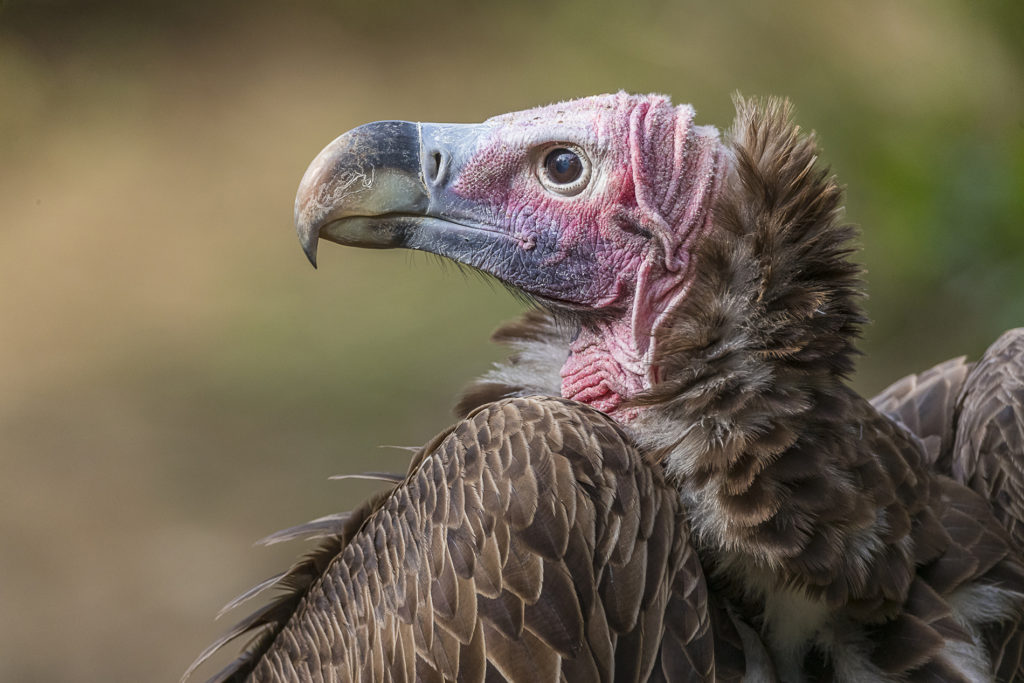
They’re the biggest! The lappet-faced vulture is the largest vulture in Africa with a wingspan up to 9.5 feet. Their size is hugely beneficial to all of the other vultures in their range. With their massive, powerful beaks, lappets are able to open up very large and thick-skinned carcasses,—even elephants! Often, other species of vultures rely on them to tear into the tough hides of larger mammals in order for them to eat. Although they are the most powerful vultures, they often hang back and wait for the crowds of feasting birds to clear. They have the luxury of eating tougher items that the smaller birds leave behind. Just another great example of how vital every individual vulture is to keeping our environment clean and disease free. The only vultures that rival lappet-faced vultures in size here at the park are the California condors!
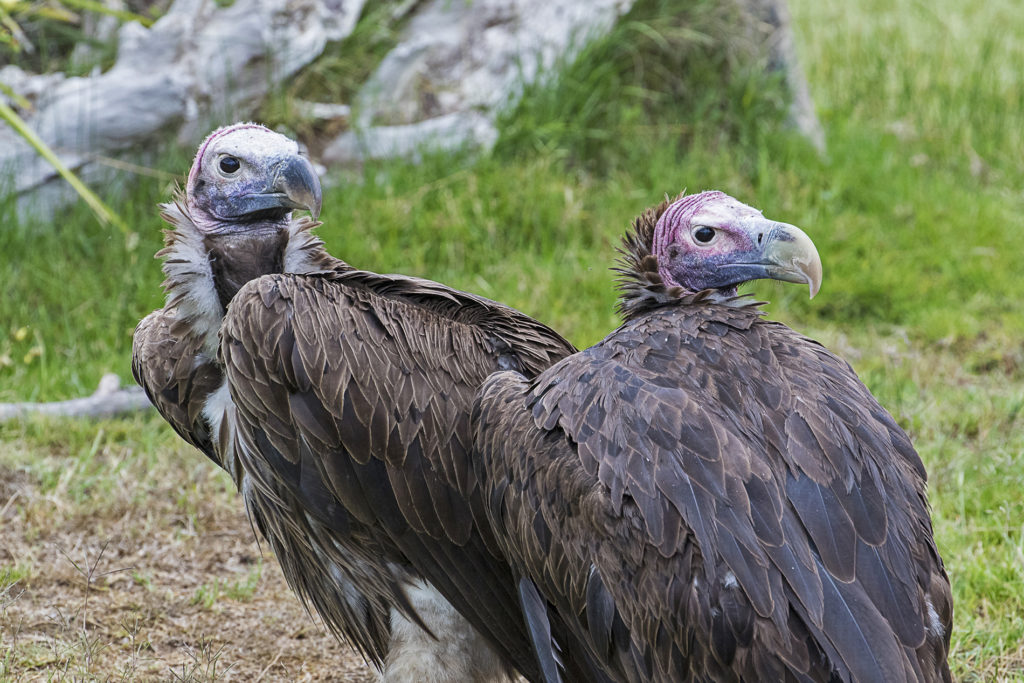
They’re contributing to the fight to end extinction! Our new lappets are an established bonded pair, but have never produced a chick. The San Diego Zoo Safari Park has a long history of success in breeding vultures, most famously the California condor. Since this pair had yet to be successful at their previous zoo, it was recommended that they be sent here in order for us to assist with our expertise in this area. They’ve been here for less than a year and have already begun building an impressive nest and laid their first egg here with us! Unfortunately, the first egg wasn’t fertile but we are hopeful that this is a step in the right direction. You can often see them carrying very large sticks around their exhibit and adding them to their nest or just snuggling up next to each other, all excellent signs of future success.
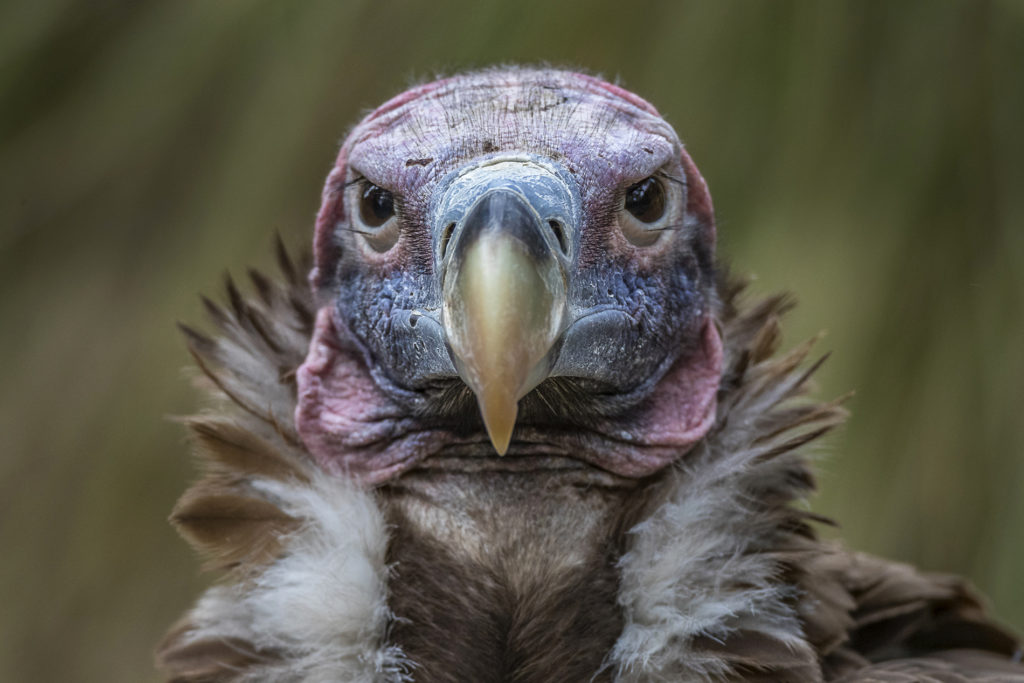
There are so many reasons these birds are special. Vultures play such a vital role in maintaining a healthy environment and we will celebrate all of them at the Safari Park this coming Labor Day weekend for our annual International Vulture Awareness Day weekend-long celebration. But ask any keeper or vulture lover around and they will tell you the very best thing about a lappet-faced vulture without question is…those absolutely adorable fuzzy pants! Stop by and visit them next time you’re walking through African Woods and don’t forget to visit us August 31 - September 2 as we celebrate all of the vultures here at the Park!
Erin Womack is a senior keeper at the San Diego Zoo Safari Park. Read her previous blog, Helping them Soar Again.


